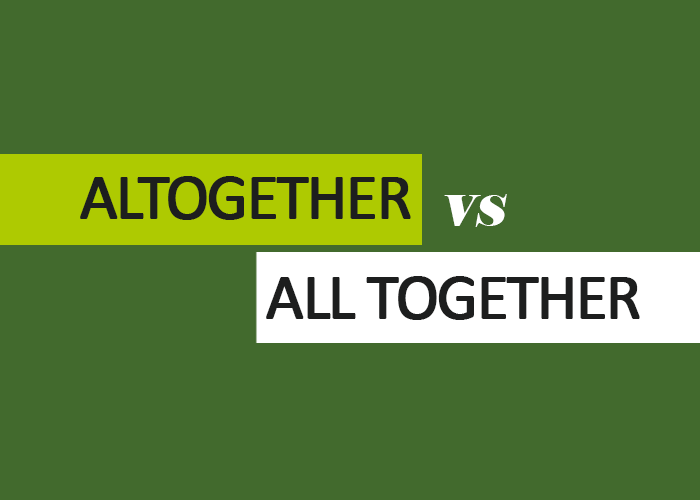گرامر پیشرفته: ?Altogether or all together?، Begin or start

گرامر پیشرفته: ?Altogether or all together?، Begin or start
گرامر پیشرفته: ?Altogether or all together?، Begin or start
Altogether
Altogether means ‘completely’ or ‘in total’:
In 1997 the sales tax was lowered to 4%, then in 2001 it was abolished altogether.
The book was €13.50 and the magazine was €5.25, so it was €18.75 altogether.
All together
All together means ‘with each other’, and is similar to together:
Put your clothes all together in one pile and I’ll wash them for you.
Not: Put your clothes altogether in one pile …
[a group of five people are waiting at the entrance to a restaurant]
Waiter:Are youall together?
Customer:Yes. Can you do a table for five?
Begin or start?
We can use the verbs begin and start to mean the same thing but begin is more formal than start. Begin is an irregular verb. Its past simple form is began and its -ed form is begun:
When did you begin learning English?
The meeting didn’t start until 9 pm.
We use start, but not begin, to talk about machines:
Press this button to start the printer.
Not: …to begin the printer.
The lawnmower won’t start. (this means that it doesn’t work)
Not: The lawnmower won’t begin.
Start, but not begin, is used to talk about creating a new business:
She started a new restaurant and it’s been going really well.
Not: She began a new restaurant …
مطالب مرتبط:
Tag:academic writing, Grammar, IELTS, IELTS Writing, TOEFL, TOEFL Writing, Writing, آیلتس, رایتینگ, رایتینگ آیلتس, گرامر



